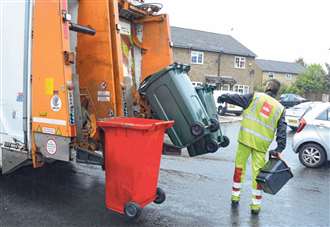Soaring levels of sick days in a council’s waste services have racked up losses exceeding £1 million.
Thanet District Council (TDC) documents show that in 2024-2025, the authority overspent by more than £1.3 million on its domestic waste and street cleaning services.

Of that money, about £1m was “primarily due to higher than historical and industry average rates of sickness absence,” papers say.
A council chief says the problem is due to ”manual workforce absence rates” being “typically higher than other parts of the business”.
However, “more efficient processes” are now helping to ease the strain.
Official documents show a “consequent reliance on agency staff across the entirety of the service, coupled with the additional street cleaning personnel”.
The findings unearthed a staffing overspend, including agency and overtime, of £1.011m.
Additionally, the report notes overspends of £87,000 on depot repairs and maintenance, £75,000 for increased PPE costs, £103,000 for vehicle maintenance and hiring expenses, plus a £45k shortfall in bulky waste income.

Agency staff are relatively common across the public sector, but they are typically expensive.
Often, when a council or other public body suffers persistent understaffing or absence, they will fill gaps with staff hired from specialist agencies while waiting to hire new employees or for the absence to end.
The same documents tell of plans to recruit a Human Resources officer from the cleansing services budget this year to remedy the “persistently high sickness absence rates”.
Cabinet member for cleansing and coastal services, Cllr Steve Albon, said: “Keeping the district clean is a top priority for residents.
“Our refuse collection and street cleansing service is a key way we deliver on that commitment.

“Making sure we have the staff in place to maintain a reliable service for residents is therefore a priority.
“Given the nature of the work involved, manual workforce absence rates are typically higher than in other parts of the business.
“While rates of absence have been higher than we’d like, we have been focusing our efforts on improving staff welfare and creating more efficient processes and the picture is now improving.
“This is a trend we expect to see continue.”
